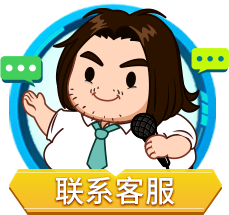They had practiced countless times at home how to open a coffin—how to expose the nails, how to remove them, the types of coffins, and how to determine whether the contents were decayed bodies. They were all well-versed in these techniques. However, they never expected that their first real task would be to face a coffin hanging from the ceiling.
At this moment, the best approach would have been to hang themselves from the ceiling and work upside down, but obviously, that was unrealistic.
After some deliberation, the group concluded that using the standard method to open the coffin from the top would be too risky. The body would certainly be weighed down by the coffin lid, and if the nails were removed, regardless of whether there was any corpse fluid inside or if it was toxic, as long as the pressure was uneven, there would inevitably be a leak. The coffin fluid would then spurt out from that opening, and if it were toxic, it could easily harm the person opening the coffin. Even if it weren’t toxic, it would still be disgusting.
The best method would be to drill a hole in the coffin, then check the situation inside through the hole before considering other actions.
After discussing, Zhang Haike, who had the best skills among the five, took the lead with a awl. The other two formed a human ladder to boost Zhang Haike up to the edge of the coffin. After pondering for a while, Zhang Haike carefully inserted the awl into the coffin little by little. By feeling with his fingers, he slowly realized that the awl had pierced through the coffin wall and entered the interior, but the opening was still very small.
He then tied a rope to the end of the awl, climbed down to the ground, and hid in a corner of the tomb chamber. He picked up a piece of blue brick and aimed at the awl, throwing it with force, which drove the awl completely into the coffin. They then pulled hard on the rope to extract the awl.
They expected to see a gush of black liquid pouring out from the hole, but instead, what gushed out was not black water, but a very faint black smoke, as if the dust accumulated inside had been disturbed and was escaping through the hole. The black smoke only sprayed out a little before stopping, and the entire tomb chamber returned to its previous tranquility.
The group exchanged glances. Zhang Haike said, “It looks like it’s dry inside. We should be able to remove all the nails without any major issues.” Another person replied, “Let’s not jump to conclusions just yet. Let’s first check near the hole to see what the situation is; what exactly is that black smoke?”
So Zhang Haike climbed back up to the shoulder of the human ladder, reached the edge of the coffin, and carefully leaned closer to the hole. After observing for a while, he said, “It’s dust, a very, very fine black dust.”
The person who had just cautioned against making premature conclusions said, “This is bad. If the coffin is filled with this kind of dust, what will happen when we lift the lid? The black dust will pour out and cover everyone. If the black dust is toxic or corrosive, everyone will be in trouble. Moreover,” he paused for a moment, “dust is much harder to deal with than water. With water, we can slowly drain it out, but no matter what we do, we can’t get all the dust out of the coffin.
Dust is much more fluffy than water. If we enlarge the hole and the dust bursts out, water would only splash a few drops and seep away along the tomb’s drainage, but the dust would immediately disperse into the air as soon as it hit the ground.”
I hope this helps! If you need any further assistance, feel free to ask.
A little bit of ash revealed so much, and a few people suddenly felt a bit disheartened. It seems that this coffin cannot be opened; the best way to prevent tomb robbing is not to make the tomb chamber solid, but to stick the coffin to the top of the tomb.
As a few people wore frowns, suddenly one person greeted the others and pointed to one side. When their gaze shifted, they discovered that, besides the coffin, there was something particularly strange in this tomb chamber. The thing itself wasn’t strange, but everything else in the chamber was upside down, and only it was placed right side up.
From a distance, it looked like a statue of some kind of animal in the haze.
**4. The Past**
When Zhang Hai Ke mentioned Ma’an Village, I felt a heaviness in my heart, recalling my experiences after the Mysterious Oil Bottle entered the bronze door. For a long time, my experiences, including some hearsay, seemed to converge here as if destined by fate. After parting ways with the Mysterious Oil Bottle in Changbai Mountain, many things progressed in unexpected ways. Although these developments weren’t as thrilling as I had imagined before, the amount of information they brought far exceeded my expectations.
After this incident, I understood a principle: many puzzles and truths don’t require deliberate pursuit. Once everything settles down, they will gradually emerge with the passage of time.
A philosopher once said that only when the tide recedes can you see who wasn’t wearing pants. Or to put it in a more fitting example, when you deliberately search for something, you often can’t find it even after turning your whole house upside down. But when you stop intentionally looking for it, it tends to suddenly appear before you at some point.
Some puzzles are just like that.
I was in a state of despair for a long time, during which I experienced two conflicting states. One was extreme frustration, not wanting to do anything, just wanting to lie on the lounge chair, reminiscing about past fragments and wondering how different the outcomes would have been if I had made different choices. I thought that if I hadn’t been so entangled or so obsessive-compulsive, I might have walked step by step into another life that could be more pleasant than the current one.
In many ways, not knowing something is far better than knowing, and understanding can be much more painful than not understanding.
The other state was me constantly encouraging myself, telling myself that even if I didn’t want to do certain things, I still had to do them.
So I managed my uncle’s shop with this contradictory mindset. At first, because Panzi wasn’t around, I had to handle many things alone, making it very difficult. When I felt frustrated and wanted to quit, I thought of the song Panzi sang for me before he died:
“Little Third Master has to move forward, Little Third Master cannot retreat.”
I had no right to retreat.
In this business arena, what is called moving forward is really just a series of small matters. If I were to shrink back in such situations, I would truly let down many people, so I kept pushing myself.
By the second quarter of the second year, I had organized many things. I discovered a trick: when you have already completed a task very thoroughly, especially after you have moved past the initial accumulation stage to a certain extent, things become increasingly simpler. This is because you have the opportunity to make mistakes and to change direction. If your overall gains exceed your losses, your system can survive.





发表回复